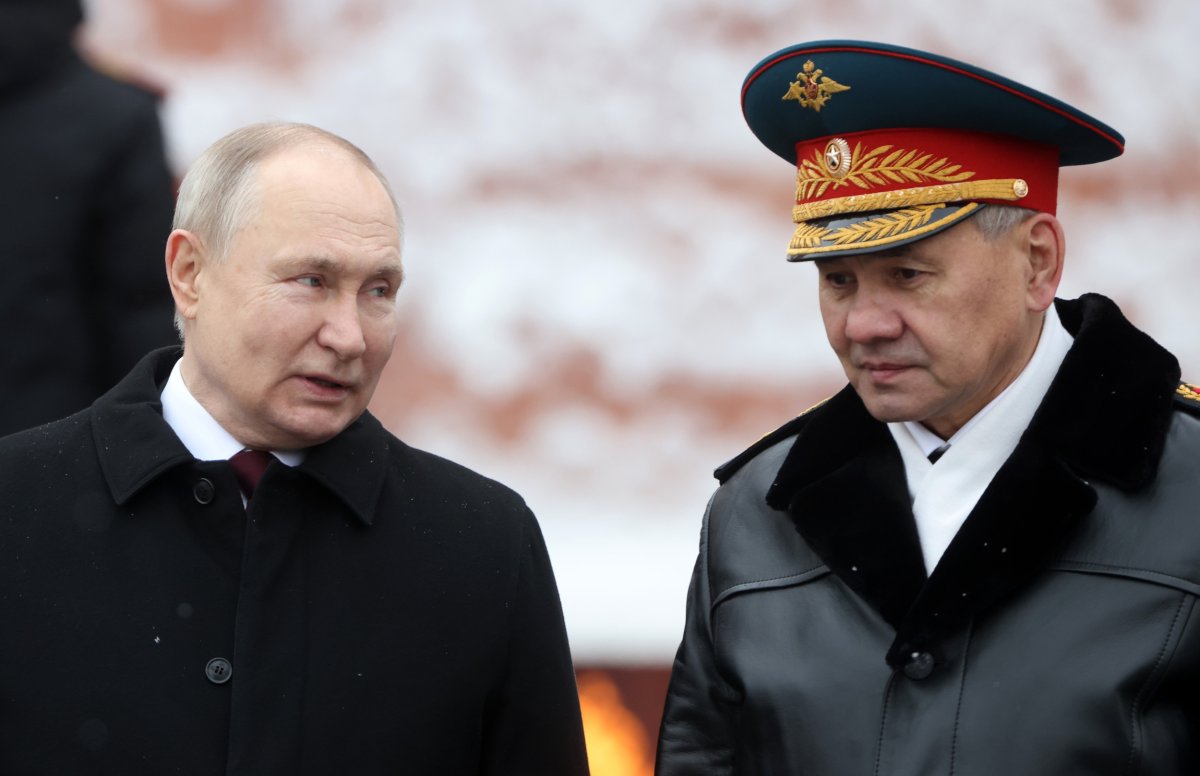Russia will create two new armies before the end of the year, the country's defense minister Sergei Shoigu has announced, as fears grow that Moscow is planning for an eventual war with NATO.
On Wednesday Shoigu announced plans to boost Russia's conventional military capabilities, saying that it had formed an army corps and a motorized division.
In addition, he said that the Russian military plans to form two combined arms armies (CAA) and 14 divisions, as well as 16 brigades, by the end of 2024.
However, a former British diplomat told Newsweek that Shoigu's announcement did not signal a Russian attack on the West and was a re-statement of previous long-term structural plans approved by Vladimir Putin at the end of 2022.
The Institute for the Study of War (ISW) noted that last year Russia had formed two new CAAs—the 25th and the 18th.

In January 2023 Shoigu announced that Moscow would also create three new motorized rifle divisions and two new air assault divisions, as well as reorganizing seven motorized rifle brigades into motorized rifle divisions.
The ISW said that Shoigu's announcement on Wednesday did not differentiate between air assault and motorized rifle divisions, which probably meant Moscow will stand up two new divisions this year, in addition to the 12 divisions announced in January 2023.
"Shoigu's statement yesterday was not new and does not presage a Russian attack on NATO," said John Foreman, a former British defense attaché to Moscow and Kyiv.
"It was a reiteration of previously announced plans to enlarge and reshape the Russian Army as a strategically defensive measure in response to Finland and Sweden joining NATO. "
"Shoigu was typically opaque on the details," Foreman said. "I don't believe Russia—currently—has the ability to man, train, and equip these new larger formations given its ongoing struggles in Ukraine, ongoing losses, severe pressures on the military-industrial complex, and destruction of huge amounts of armor and equipment."
In its assessment on Wednesday, the ISW also said Russia currently lacks the manpower, infrastructure, and training capacity to create several entirely new divisions to army-level formations.
The plans are more likely to boost Russia's "military capabilities vis-a-vis NATO," the ISW added, "personnel changes within the Russian MOD may be further indicators of Russia's preparations for a conflict in the long term."
Newsweek has contacted the Russian Defense Ministry for comment.
The news comes amid concerns about Vladimir Putin's plans following his full-scale invasion of Ukraine, with President Joe Biden saying in December that Russia would look to attack a NATO country.
Polish President Andrzej Duda told CNBC on Wednesday that Putin is shifting Russia to a war economy with the aim of being able to attack the alliance as early as 2026 or 2027, citing unspecified German research.
In February, Danish Defense Minister Troels Lund Poulsen said intelligence signaled Russia may try to attack a NATO country within three to five years.
The ISW said that the timeline to create a significant Russian conventional military threat "depends heavily on the financial resources Putin is willing to put against military efforts."
Meanwhile, Andrii Yusov, Ukraine's military intelligence spokesman, said on Monday that Russia could "more openly" carry out mobilization now that the Kremlin-controlled election that returned Putin to power was over.
However, he said that a covert draft of Russia's military had been ongoing and had not stopped during the presidential campaign.
Update 03/21/24, 7:49 a.m. ET: This article has been updated with comment from John Foreman.
Uncommon Knowledge
Newsweek is committed to challenging conventional wisdom and finding connections in the search for common ground.
Newsweek is committed to challenging conventional wisdom and finding connections in the search for common ground.
About the writer
Brendan Cole is a Newsweek Senior News Reporter based in London, UK. His focus is Russia and Ukraine, in particular ... Read more
To read how Newsweek uses AI as a newsroom tool, Click here.








